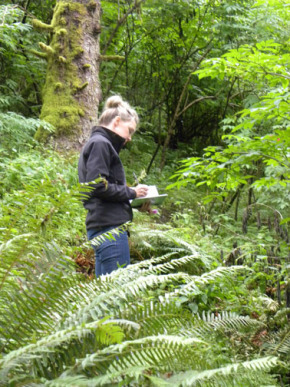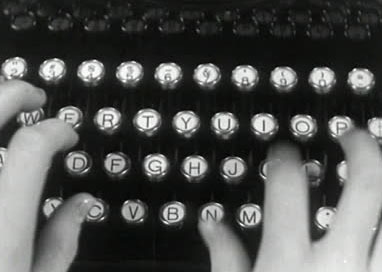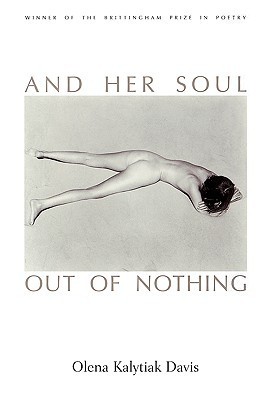Drew Myron's Blog, page 63
March 28, 2013
Thankful Thursday: Despite Yourself
You choose one little thing, and everything that follows — maybe for the rest of your life — chooses you. So you pray for mercy, for whatever it takes to bear it gracefully. And give thanks for all the good things that come along, despite yourself, despite all the stupid, awful things you believe and say and do.
- from In the Deep Midwinter
a novel by Robert Clark
I am thinking of choice and consequence, of path and circumstance. What does it mean? It is Easter Week. Orchids and lillies, prayer and surprise, jellybeans and bunnies. This means something, and yet, what really? To everything I ask: What does this mean to me, to you, to the world at large — and is there distinction?
I am thankful on this Thursday, for all the good things despite myself.
Now it's your turn: What are you thankful for today?
March 21, 2013
Thankful Thursday: Spring-ish
It's Thankful Thursday! Gratitude. Appreciation. Praise. Please join me in a weekly pause to appreciate people, places & things.
This week marks the official change of season, and I am thankful for spring. Here on the western edge, seasonal shifts are not immediately apparent. It's been raining for days, the sky is a static grey, and I'm still swathed in sweaters and boots. But even in the endless damp, daffodils are bursting, a bright yellow sign of spring.
How simple, how sweet, this dash of color. Some days the smallest things mean the most.
How about you — What are you thankful for today?
March 17, 2013
On Sunday: Compassion, Expansion

Writing is an act that generates and expands attention. . . Your suffering is not discontinuous from the suffering of the world. Attentiveness, when freed from the intentions of self-promotion, is a practice that inevitably leads to compassion. And compassion initiates the ability to do anything useful, to think anything original and ungrasping, to work with the actualities of a situation with some breadth of being and some hope."
- Jane Hirshfield
from A God In The House: Poets Talk About Faith
March 14, 2013
Thankful Thursday: boyfriend & more
Thursday is no solo gig. It's now a prompt, a share, a circle, a pause. I wake to an email: It's Thankful Thursday, a friend writes, and I'm thankful for you.
What a great way to start the day.
Funny thing about thankfulness, the more you seek, the more you find. I've been gathering gratitude — the silly, the profound, the vast inbetween. Here, a few highlights:
 1. Boyfriend jeans. Soft, comfy and cool, this worn-out, worn-in style has been called "the thinking girl's sexy." I've tossed the skinnies for this low-slung waist and relaxed rear.
1. Boyfriend jeans. Soft, comfy and cool, this worn-out, worn-in style has been called "the thinking girl's sexy." I've tossed the skinnies for this low-slung waist and relaxed rear.
2. A friend gives me a book of poems (Bewilderment by David Ferry). My friend is not a poet; she simply enjoyed the book and wanted to share her enthusiasm. I'm delighted. Think about it, how often do non-poets give the gift of poetry?
 3. A candy bar wrapped in poem! Chocolove prints a poem on the inside of every wrapper. With 32 unique wrappers, they've printed an estimated 500 different poems. I recently enjoyed dark chocolate with Meeting at Night by Robert Browning.
3. A candy bar wrapped in poem! Chocolove prints a poem on the inside of every wrapper. With 32 unique wrappers, they've printed an estimated 500 different poems. I recently enjoyed dark chocolate with Meeting at Night by Robert Browning.
4. Speaking of fashion (and we were, see no. 1):
When in doubt, choose the plainer dress, the simpler word.
— from A Poem Should Not Be Mean But Behave: Good Breeding for Poems by Jill Alexander Essbaum.
Go here for the full poem (and really, isn't the title alone worth the effort?)
What's got you delighted, dappled, simple and clear? It's Thankful Thursday, a weekly pause to give thanks for people, places, things & more. What are you thankful for today?
March 13, 2013
Let's Come to Our Senses
 Let's write together — in the lush green forest, where river meets sea, meets sky, meets creative exploration.
Let's write together — in the lush green forest, where river meets sea, meets sky, meets creative exploration.
Come to Your Senses
A Writing Workshop with Drew Myron
Sitka Center for Art and Ecology
in Neskowin, Oregon
Saturday, June 15, 2013
10am - 4pm
Cost: $70
About the Workshop:
Writing comes alive with the detail our senses provide. Exploring the senses of touch, taste and smell, we'll focus on fresh writing with prompts and practices designed to energize and inspire. From poetry to prose, fact to fiction, this interactive workshop will serve as a creative springboard from which you'll generate new work, meet other writers, and share experiences that will help shape, shift and sharpen your writing. This workshop is open to adult writers of all levels, experience and genres.
About the Instructor:
Drew Myron is the author of "Thin Skin," a collection of photos and poems. She frequently collaborates with artists and her work has appeared in galleries, books and literary journals. As a journalist, Drew has covered news, arts, entertainment and travel for AOL’s “CityGuide,” “Northwest Best Places” and other publications. She heads DCM, a marketing communications company. She is writing instructor at Seashore Family Literacy, and the creator and host of "Off the Page," an annual reading event featuring Oregon writers.
Register now, here.
March 5, 2013
How to Write

Want to write lean and concise? Try writing ad copy — it's excellent training in the skill of combining persuasion with pith, muscle with mood. It's the haiku of commerce, and it's not easy.
No one likes advertising but everyone recalls a catchy jingle, a funny line, or a moving moment. Haven't you chuckled over an ad, or shyly wiped a tear after a 30-second spot?
David Ogilvy, the original Mad Man, was an ad exec known as the Father of Advertising. In 1982 he sent to all of his employees this memo:
How to Write
The better you write, the higher you go in Ogilvy & Mather. People who think well, write well. Woolly minded people write woolly memos, woolly letters and woolly speeches.
Good writing is not a natural gift. You have to learn to write well. Here are 10 hints:
1.
Read the Roman-Raphaelson book on writing. Read it three times.
2.
Write the way you talk. Naturally.
3.
Use short words, short sentences and short paragraphs.
4.
Never use jargon words like reconceptualize, demassification, attitudinally, judgmentally. They are hallmarks of a pretentious ass.
5.
Never write more than two pages on any subject.
6.
Check your quotations.
7.
Never send a letter or a memo on the day you write it. Read it aloud the next morning — and then edit it.
8.
If it is something important, get a colleague to improve it.
9.
Before you send your letter or your memo, make sure it is crystal clear what you want the recipient to do.
10.
If you want ACTION, don’t write. Go and tell the guy what you want.
— memo via Brain Pickings
March 1, 2013
Poetry is the soul's erosion control
 Behind the veil of morning fog Mount Hood - by Margaret Chula
Behind the veil of morning fog Mount Hood - by Margaret Chula
Traffic? Construction? I'm not bothered.
Driving through a mess of construction this week, I was thrilled to spot bright orange poetry lining the highway. Orange Lining is a brilliant public art project created especially for the construction of Portland, Oregon's newest light rail line. Part One of the project places lines of poetry on orange silt fencing used at construction sites to control soil erosion.
 Poetry is the soul's erosion control - by J. Graham Murtaugh
Poetry is the soul's erosion control - by J. Graham Murtaugh
In a call for short lines of original text (50 characters or less), Orange Lining received 1,100 submissions and chose 102 for use in the project.
"Orange Lining works on multiple levels – visual, conceptual and poetic," writes Peg Butler, the artist-designer who created this project with Buster Simpson. "It offers a creative, collaborative adventure that enables an ephemeral yet utilitarian process to evolve and transform into a permanent element of transit infrastructure. The process is legible and transparent to allow for the serendipity that creates an authentic, well-loved urban streetscape."
Part Two of the project stamps lines of poetry in the site's freshly laid concrete sidewalks.
 What we love will save us - by David Oates
What we love will save us - by David Oates
By "setting in stone" evocative lines and text, explains artist Buster Simpson, "we are borrowing this utilitarian process, the act of setting impressions in fresh concrete, to mark the expressions of a specific time in history and acknowledge the civic beauty of this grand infrastructure project."
February 26, 2013
Fevered
All day I've been chewing
on my own acrid gloom,
trying to put away
the things you keep carrying
home from work: the possessions
of children and women
and drunks, stolen or cheated,
the tasteless unhappiness
of others into jars labeled:
Heartbreak, Injustice,
Just-Plain-Bad-Fucking-Luck
— Olena Kalytiak Davis
from It's Shaped Like a Fork
 Not since Naomi Shihab Nye. Not since Julia B. Levine. Not since Anne Sexton.
Not since Naomi Shihab Nye. Not since Julia B. Levine. Not since Anne Sexton.
It's been a long time since I've turned and returned to a book of poems to dissect line after line, holding each piece to light, peering at the shadows to gaze with a mix of adulation and envy.
But now there is Olena Kalytiak Davis with And Her Soul Out of Nothing, and I'm marking pages, writing down and down and down. I want to remember, to share, to shake and shout, say, You won't believe this poem, and this one, and this one, too.
Outside, the thin line left in the sky
is exhausting itself.
- from This Is The Way I Carry Mine
These poems beat with force and beauty. She's the rebel girl you want to know — all long limbs and sharp angles, wearing a cigarette and an indifferent gaze. You're desperate to be her but you know you never will, and you're sort of afraid to try.
Still, I dig under, walking, stalking, circling the words, trying to discover her science. These poems move. I am restless to read more but also eager to settle in. How does she do this, create this tempo, this wonderfully alluring ache?
Please don't misunderstand:
We still suffer, but we are happy.
— from Postcard
Reading good writing stirs my own. This is the beautiful fever.
What's got you burning? What great words are you reading, writing, admiring, envying, savoring?
February 21, 2013
Thankful Thursday: Told and Untold
 The nine-year-old girl stands tall and announces to the room, I am ready for my story to be told.
The nine-year-old girl stands tall and announces to the room, I am ready for my story to be told.
We're reading The House on Mango Street, and talking about places we've lived. What do you remember? What do you want to forget?
The memories unwind. I miss this . . . I remember that . . . We write a line, and another. Some minds wander, others fix. Pages rustle with quick turning. Pens fly. Others stutter, stop.
A boy folds his arms. I don't want to write about my life, he mutters.
How much to push? How much to rest? We are measuring our lives. We stop and start. Even just a line is enough, is enough for now.
Something in me yields, and I am thankful for this time together. For willingness, for reticence, for memory that feels both collective and individual. For children reaching, for children trying. For all of our stories, told and untold.
It's Thankful Thursday, a weekly pause to appreciate people, places, things and more. Joy contracts and expands in proportion to our gratitude. What makes your world expand?
February 17, 2013
Are you a good citizen?
What is the secret to getting published?
Learn your craft, yes. But also, work to create a world in which literature can thrive and is valued.
— Cathy Day
Are you a good literary citizen? Just as in "real" life, in your writing life it's not enough to move through the days thinking only of yourself. In a selfless and inspired action, author Cathy Day offers the following six principles of Literary Citizenship:
1.
Write “charming notes” to writers.
Anytime you read something you like, tell the author. Send them an email. Friend them on Facebook or follow them on Twitter. Not all writers are reachable, so you might have to write an old fashioned letter and send it to the publisher or, if they teach somewhere, to their university address. You don’t have to gush or say something super smart. Just tell them you read something, you liked it. They may not respond, but believe me, they will read it.
2.
Interview writers.
Take charming notes a step farther and ask the writer if you can do an interview. These days, they’re usually done via email. Approach this professionally, even if you are a fan. Write up questions (I prefer getting one question at a time, but some prefer getting them all at once). Let the writer talk. Writers love to talk. Submit the interview to an appropriate print or online magazine. Spread the word. There are many, many outlets, some paying. I really like the interviews published by Fiction Writer’s Review, like this one.
3.
Talk up (informally) or review (formally) books you like.
Start with your personal network. Then say something on Goodreads. Then Amazon.com or B&N. Then try starting a book review blog. Or a book review radio show, like a former student of mine, Sarah Blake. Submit your reviews to newspapers and magazines, print or online. God knows, the world needs more book reviewers. Robin Becker at Penn State and Irina Reyn at Pitt are just two writer/teacher/reviewers I know of who actively teach their students how to write and publish book reviews. Remember: no matter what happens to traditional publishing, readers will always need trusted filters to help them know what is worth paying attention to and what’s not. Become that trusted filter.
4.
If you want to be published in journals, you must read and support them. Period.
If it’s a print journal, subscribe. If it’s an online journal, talk them up, maybe even volunteer to read. One of my favorite writers, Dan Chaon, had this to say about journals: The writing community is full of lame-o people who want to be published in journals even though they don’t read the magazines that they want to be published in. These people deserve the rejections that they will undoubtedly receive, and no one should feel sorry for them when they cry about how they can’t get anyone to accept their stories. You can read his incredibly practical advice here.
5.
If you want to publish books, buy books.
I don’t want to fight about big-box stores (evil!) vs. indie bookstores (good!) or about libraries (great!) or how truly broke you are (I know! I’ve been there, too!) or which e-reader is “better” for the writer or the independent book seller (argh!). I just want you to buy books. Period. It makes me angry to see the lengths relatively well-off people will go to avoid buying a book. Especially considering how much they are willing to spend on entertainment, education, or business-related expenses. If you’re a writer, you can file a Schedule C: Profit or Loss from a Business, and books and magazine subscriptions are tax deductible.
6.
Be passionate about books and writing,
because passion is infectious. When I moved back home again to Indiana this past summer, my husband and I set out to buy bookshelves. The first furniture store we entered didn’t even carry bookshelves, the second carried only a single type, and the third (which we bought, because they were on sale) were really intended to be decorative shelves, not book shelves. Mind you, I wasn’t really surprised by this. I grew up here, after all. If you find yourself in a literary desert, rather than fuss and complain about it, create an oasis. Maintain a library in your home. Share books with your friends, co-workers, children, and community. Start a book club. Start a writing group. Volunteer to run a reading series at your local library. Take a picture of your bookshelves and put them on Facebook. Commit to buying 20 books a year for the rest of your life.
This list, by Cathy Day, was originally posted on The Bird Sisters, a blog by author Rebecca Rasmussen (and like a good citizen, I bought their books in a show of appreciation and support).
Are you a good citizen?
Have you anything to add to the list?
I'd love to hear your ideas.




